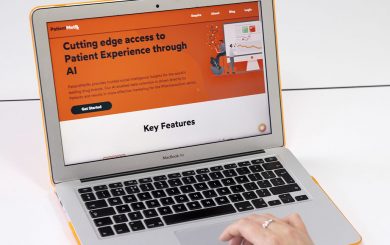Lifescience Industry has been looking at how Box can support the transition to virtual audits and inspections, with the ability to effortlessly manage the delivery of secure, inspection-ready, standards-compliant documentation from collection to the auditor’s desktop.
Digital transformation is such a ubiquitous part of modern life that it is now largely taken for granted. As consumers, we have transitioned seamlessly from the use of video tapes to an endless choice of streaming film and TV content. We have followed the same path with music from vinyl to CDs to streaming, and we trust social media sites to save and care for our most cherished photographs and memories. Our financial transactions have become increasingly cashless, contactless and paperless, and the endless need for printer ink has dried up as we move our communications onto the screen and into the cloud.
Transition to the cloud delivers superior data security and workflow efficiency, as well as reduced storage and management costs, and it supports frictionless collaboration. However, there are areas of business that face more of a challenge to realise the benefits of digital transformation.
For very good reasons, life science organisations operate in a highly regulated environment. Achieving the benefits of digital transformation while meeting, and demonstrating, the highest quality standards is a significant challenge. Compounding this challenge, the collection, storage, management and presentation of regulated content is becoming more complex. Input sources are becoming more diverse and more remote. Data input involves more users, more integrated computer systems and more devices, such as mobile phones, tablets, wearables, monitors and internet enabled products (IoT). The use of Patient Reported Outcome Measures (PROMs) is becoming more integrated into clinical trials and studies. Recording of Patient Reported Experience Measures (PREMs) requires processing of complex, unstructured data and is driving developments in the use of AI and natural language processing (NLP). Data transparency is evolving the need to feed information back upstream to patients and trial subjects. Conversely, data privacy compliance is becoming more challenging as countries and regions implement stronger legislation to control the recording, storage, movement and use of personal data.
Companies in the life science sector, while highly capable in their field, can lack the digital expertise and resources needed to manage this challenge and so are tempted to rely on tried and tested, paper-based, offline methods of managing documentation and content essential to their organisation’s smooth running. By doing so, they may be losing out on the benefits and efficiency gains available. They often don’t have the time to modernise because they are managing existing inefficient processes. For these companies, there is a growing need to work with specialist partners to ensure that they can take full advantage of the benefits of digital transformation.
One particular opportunity which has been thrust into the spotlight is the transition to virtual audits and inspections. The restrictions on travel, and therefore meetings, caused by the Covid-19 pandemic presents a significant challenge to the process of auditing production or trials sites and regulated documentation such as SOPs, clinical study protocols and trials data.
Where possible, virtual audits have become the new normal for regulators, CROs and sponsors. All involved have become accustomed to the welcome savings in travel time and cost that the new methodology has delivered. It is highly unlikely that anyone will be going back to business-as-usual when restrictions are relaxed. But the quality of such audits is varied, and significant staff time is often required to ensure that auditors and regulators can access required documents at the time of an inspection. It is not unknown for documentation to be emailed to inspectors (and in so doing be duplicated) and screen sharing is used to interrogate data online. All of this, while avoiding travel time and cost and addressing Covid-19 restrictions, raises significant questions about information security and validation and ultimately the quality of the process itself. Failure to provide documentation can result in poor audit outcomes and even lost revenue and production.
Box is leading the way in delivering this expertise and service, allowing life science companies to reap the benefits of digital transformation including: efficiency gains, reduced costs and stronger collaborations; enhanced data security, document control and workflow automation; scalability of operations, interoperability and integration with a growing number of data collection, management and analytical solutions; and the essential ability to deliver secure, audit-ready, standards-compliant documentation for the purpose of virtual audits and inspections, as and when required.
Request link to view "Virtual Audits - The New Normal? round table and webinar
Hosted by Box with guests from: Arjo Huntleigh, BSI, Covance, FujiFilm, PCI and Trakcel
"*" indicates required fields
News & Analysis






